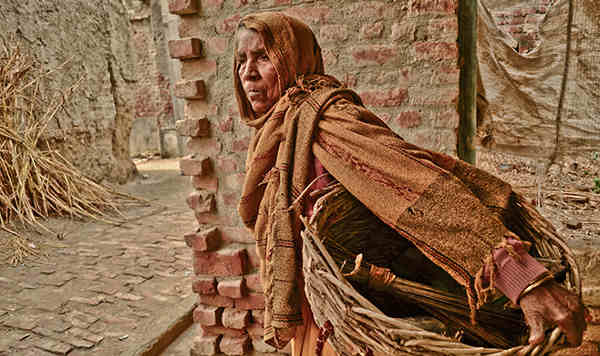Low-Caste Women Forced to Clean Human Waste in India

Women who clean dry toilets in rural areas often are not paid cash wages, but instead receive leftover food, grain during harvest, old clothes during festival times.
While the recently formed Bharatiya Janata Party (BJP) government in India has embarked upon an expensive “Clean India” campaign, a new report reveals that government officials are ignoring human rights, as ‘manual scavenging’ persists with officials’ support.
The Indian government should end “manual scavenging” – the cleaning of human waste by communities considered low-caste – by ensuring that local officials enforce the laws prohibiting this discriminatory practice, Human Rights Watch (HRW) said in a recently released report.
The government should implement existing legislation aimed to help manual scavenging community members find alternative, sustainable livelihoods.
The report, “Cleaning Human Waste: ‘Manual Scavenging,’ Caste, and Discrimination in India,” documents the coercive nature of manual scavenging.
Across India, castes that work as “manual scavengers” collect human excrement on a daily basis, and carry it away in cane baskets for disposal.
[ Can ‘Clean India’ Clean India? No Way. ]
Women from this caste usually clean dry toilets in homes, while men do the more physically demanding cleaning of sewers and septic tanks. The report describes the barriers people face in leaving manual scavenging, including threats of violence and eviction from local residents but also threats, harassment, and unlawful withholding of wages by local officials.
“Successive Indian government attempts to end caste-based cleaning of excrement have been derailed by discrimination and local complicity,” said Meenakshi Ganguly, south asia director at Human Rights Watch. “The government needs to get serious about putting laws banning manual scavenging into practice and assisting the affected caste communities.”
In 2014, Human Rights Watch interviewed more than 135 people, including more than 100 people currently or formerly working as manual scavengers, in the Indian states of Gujarat, Madhya Pradesh, Maharashtra, Rajasthan, and Uttar Pradesh.
Women who clean dry toilets in rural areas often are not paid cash wages, but instead as a customary practice receive leftover food, grain during harvest, old clothes during festival times, and access to community and private land for grazing livestock and collecting firewood – all at the discretion of the households they serve. In areas where “untouchability” practices are intact, food is dropped into their hands or thrown in front of them.
“People work as manual scavengers because their caste is expected to fulfill this role, and are typically unable to get any other work,” said Ganguly. “This practice is considered one of the worst surviving symbols of untouchability because it reinforces the social stigma that these castes are untouchable and perpetuates discrimination and social exclusion.”
The rights abuses suffered by people who practice manual scavenging are mutually reinforcing, Human Rights Watch said. Repeatedly handling human excrement without protection can have severe health consequences, including constant nausea and headaches, respiratory and skin diseases, anemia, diarrhea, vomiting, jaundice, trachoma, and carbon monoxide poisoning. These conditions are exacerbated by widespread malnutrition and inability to access health services.
In the picture above: Gangashree walks through the village to manually clean human excrement from dry toilets in Kasela, Uttar Pradesh, which she will collect in her basket and carry to the outskirts of the village for disposal. Photo courtesy: Human Rights Watch / Digvijay Singh





